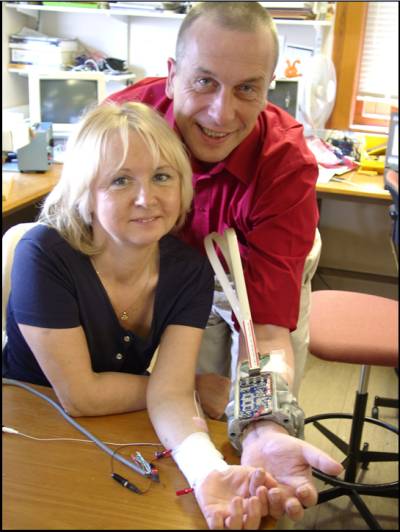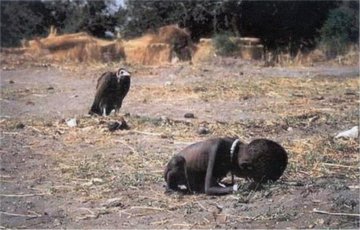Thursday, 20 December 2012
Violence, sex and the fairy tale
Today (Thursday 12th December) Google have dedicated their doodle (search page animation) to the Grimm brothers, creators of Snow White and other fairy tales. Interestingly, the ABC newspaper have responded by revealing the true nature of these popular tales. It's worth reading as it's quite eye-opening!
Thursday, 13 December 2012
The price of freedom
In class we saw a BBC news report about a family escaping Syria who had to decide between suffocating their baby to silence her, or risking the death and mutilation of 500 refugees.
This man and his family are not alone. Across the globe, hundreds, thousands, even hundreds of thousands of families struggle to continue with their daily routine.
Huxley was familiar with suffering on a global scale. He wrote Brave New World in the aftermath of the 1st World War and the Spanish flu. His novel looks for a 'solution' to this kind of suffering and to the pain of such difficult decisions: between a baby and a community of 500.
Huxley looked for security and safety in a common identity and, above all, stability. He wanted to reduce the pain of emotion by minimising friendships and making family unnecessary.
In class you appear to think this was wrong. You appear to prefer greater individuality and more opportunity, even if this means greater uncertainty.
But:
This man and his family are not alone. Across the globe, hundreds, thousands, even hundreds of thousands of families struggle to continue with their daily routine.
Huxley was familiar with suffering on a global scale. He wrote Brave New World in the aftermath of the 1st World War and the Spanish flu. His novel looks for a 'solution' to this kind of suffering and to the pain of such difficult decisions: between a baby and a community of 500.
Huxley looked for security and safety in a common identity and, above all, stability. He wanted to reduce the pain of emotion by minimising friendships and making family unnecessary.
In class you appear to think this was wrong. You appear to prefer greater individuality and more opportunity, even if this means greater uncertainty.
But:
- What about the father who had to decide between his child and the rest of his family and friends?
- Wouldn't he and the other hundreds of thousands who suffer war and repression prefer Brave New World to our own?
Monday, 10 December 2012
If you're a human, your time's up!
 For me, the most interesting and worrying moment in the video we saw in class is when Kevin Warwick starts to explain his work. Kevin's goal is nothing less than to be the one who ushers in a new age of cyborg humans. He states:
For me, the most interesting and worrying moment in the video we saw in class is when Kevin Warwick starts to explain his work. Kevin's goal is nothing less than to be the one who ushers in a new age of cyborg humans. He states:"The future I see [as] very rosy if you are a cyborg, or if you are an artificial intelligence machine. If you are a human, well, your time's up."
If he's right, you might want to get on the winning side as soon as possible - why not apply to be his research assistant? You can find out more about him at www.kevinwarwick.com
 What makes Kevin special is his degree of personal commitment. In 1998 he started experimenting with a transponder chip (inserted in his forearm) connected to his nervous system. This chip provided a link between his nervous system and other electronic devices. It allowed him to operate doors, lights, heaters and other computers without lifting a finger. He was able to use his hand movements to operate a cyborg hand or (as if he were disabled) a motorised wheelchair.
What makes Kevin special is his degree of personal commitment. In 1998 he started experimenting with a transponder chip (inserted in his forearm) connected to his nervous system. This chip provided a link between his nervous system and other electronic devices. It allowed him to operate doors, lights, heaters and other computers without lifting a finger. He was able to use his hand movements to operate a cyborg hand or (as if he were disabled) a motorised wheelchair.Obviously this 'connectivity' is limited as it is only one-way. So can you guess what his stage two was? To study the transmission of signals between people. He upgraded his chip and then went ahead and implanted electrodes in his wife - so that they could 'communicate' electrical impulses to each other directly into each other's nervous system.
Kevin's next step? Obvious, logical and potentially frightening: to progress to direct brain-to-brain transmission of thoughts and emotions.
What do you think? Is this research exciting? interesting? irrelevant? scary? worrying? necessary? dangerous? ethical?
Predicting the future

You've just watched two videos showing 'future' technology:
And you have key vocabulary and grammar for describing trends and the future in your vocabulary pack [or here for download].
Your speaking task is to prepare a 1-2 min speech presenting your ideas (or discussing other people's ideas) about the future in one or more fields, such as:
- sport and leisure
- education
- politics and social policy
- health
- travel and transport
- family and friends
Don't forget, you can use this post to discuss the videos and your ideas, if you want! It'll all be evaluated!
Thursday, 6 December 2012
Take a Photo? Save a Life?
At the moment the whole world of newspapers is in turmoil after the New York Post printed this front cover on Tuesday 4th December.
The photographer argues that he was using his flash to warn the driver. He argues that he could have done nothing to help the man. But many blame him. Still others blame the newspaper editors.
Would you have taken the photograph? Do you think the newspaper should have printed it?
The Guardian newspaper in the UK has run an article on the topic, in which other famous photographs are mentioned. One is that of a photographer who snapped a vulture apparently preying on a starving African child.
The Guardian suggests that the photographer ultimately commited suicide, unable to live with the guilt of taking the photograph rather than helping the boy. Interestingly, the real story behind the picture and the suicide is more complex - but no less tragic.
There are photographers who go out of their way to help the subject of their photographs. Nick Ut both photographed the young girl burned by napalm in Vietnam and helped her get medical treatment. (See the my model of the lyrics project in your creative writing pack for more details.)
Are photographers morally obliged to lay down their camera and help? Or should they simply 'do their job'?
The photographer argues that he was using his flash to warn the driver. He argues that he could have done nothing to help the man. But many blame him. Still others blame the newspaper editors.
Would you have taken the photograph? Do you think the newspaper should have printed it?
The Guardian newspaper in the UK has run an article on the topic, in which other famous photographs are mentioned. One is that of a photographer who snapped a vulture apparently preying on a starving African child.
The Guardian suggests that the photographer ultimately commited suicide, unable to live with the guilt of taking the photograph rather than helping the boy. Interestingly, the real story behind the picture and the suicide is more complex - but no less tragic.
There are photographers who go out of their way to help the subject of their photographs. Nick Ut both photographed the young girl burned by napalm in Vietnam and helped her get medical treatment. (See the my model of the lyrics project in your creative writing pack for more details.)
Are photographers morally obliged to lay down their camera and help? Or should they simply 'do their job'?
Subscribe to:
Comments (Atom)




